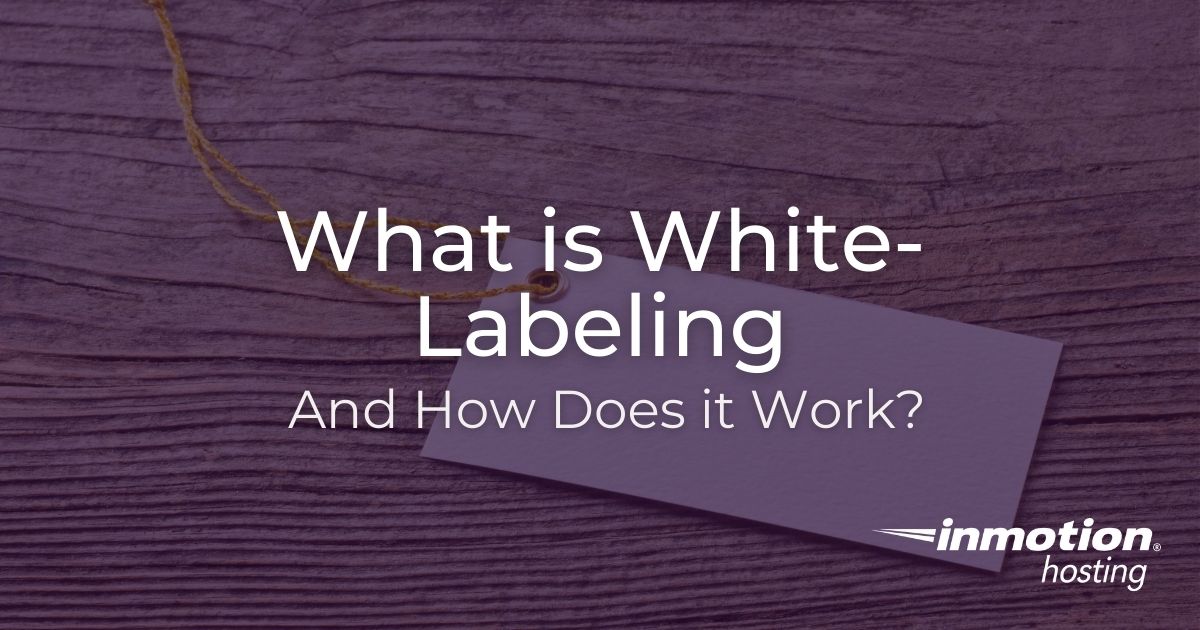
What is White-Labeling and How Exactly Does it Work?

White-labeling allows one company to sell products or services under its own name while another handles production or infrastructure. In web hosting, it means reselling hosting accounts under your brand while a provider manages the servers. This approach helps businesses build recurring revenue, control the customer experience, and scale without managing technical operations.
White-labeling is when a company provides goods or services under a blank or “white label” that can then be re-branded and sold by another company. This is often done to allow the manufacturer to focus on the quality, research, and development of the product; while the selling and marketing are handled by a company experienced in those areas.
Why Use White Labeling
As a web hosting Reseller, white-labeling gives you the ability to resell web hosting accounts with your own company’s branding. So, customers will not be aware that InMotion is actually managing the servers and infrastructure you are using to house their accounts.
This helps build brand recognition and also reminds the customer that you are providing services to them. Because if a customer sees the logo of another company, they may reach out to them for help or to upgrade their services.
White Label vs. Turnkey: Understanding the Difference
Many new resellers use “white label” and “turnkey” as if they mean the same thing, but they’re not. Understanding the difference helps you choose the right approach for your business.
White label hosting gives you full control over your brand while the provider manages the servers. You create packages, set pricing, and build relationships with your clients. The infrastructure runs quietly in the background under your name. This approach offers more freedom but requires you to handle marketing, billing, and customer relationships.
Turnkey hosting bundles everything together. That includes hosting, billing, domain registration, and sometimes even customer support. It’s easier to start but limits your profit margins and flexibility. You’re essentially renting a brand-ready business where much of the process is automated, but you give up control over pricing and customer experience.
Here’s how they compare:
| Aspect | White Label | Turnkey |
|---|---|---|
| Branding control | Complete customization | Limited options |
| Pricing flexibility | You set all prices | Pre-determined pricing |
| Profit margins | Higher potential | Lower, fixed margins |
| Setup complexity | Moderate | Minimal |
| Long-term growth | Unlimited scalability | May outgrow platform |
If you’re building a long-term business or agency, a white label reseller account gives you more freedom and ownership. You can automate tasks with WHMCS or Blesta, build loyalty with your own branding, and grow your hosting portfolio over time without needing to manage servers or hire technical staff.
Understanding why white-labeling matters is just the first step. The real advantage comes from how it scales with your business as you add more clients.
Why White Labeling Helps You Build a Stronger Business
White-label reseller hosting isn’t just about rebranding; it’s about ownership. When you host clients under your own label, you control how your services look, feel, and scale. Every login, invoice, and email reinforces your company’s identity, not someone else’s.
This independence helps agencies and developers turn hosting into a recurring revenue stream without managing servers or data centers. You can package hosting with design or SEO services and create consistent income while your provider keeps your infrastructure fast, secure, and online.
By separating brand management from technical operations, white labeling lets you focus on building client relationships and growing your business, while your provider handles the speed, uptime, and support behind the scenes.
How White Label Hosting Scales With Your Growth
One of the biggest advantages of reseller hosting is scalability. You can start with just a few accounts and expand your resources as your client list grows, without changing your platform or disrupting your brand.
Modern reseller hosting platforms use NVMe SSD storage and advanced caching, so performance remains consistent even as you add more clients. This reliability means your brand earns trust over time. Clients stay loyal because their websites stay fast and available.
When you’re ready to expand, upgrading plans or adding resources takes minutes, not days. You can add new WHM or cPanel accounts and customize them instantly, keeping your brand consistent while growing your revenue.
Now that you know how scalability works, let’s look at how real businesses are using white label hosting to generate revenue.
Real-World Use Cases: Turning Hosting Into Revenue
Many agencies use white label hosting to create all-in-one solutions. For example:
- Web design agencies include hosting in project quotes, offering clients a single point of contact.
- Freelancers sell affordable hosting packages to recurring clients instead of sending them to third-party providers.
- Marketing teams use hosting control to ensure site performance supports SEO and ad campaigns.
These models turn one-time projects into predictable income. Even better, because your clients log in through your branded portals, they associate that performance and reliability directly with your company and not a third-party host.
These revenue models work best when you avoid common mistakes that can undermine your brand. Here’s what to watch for:
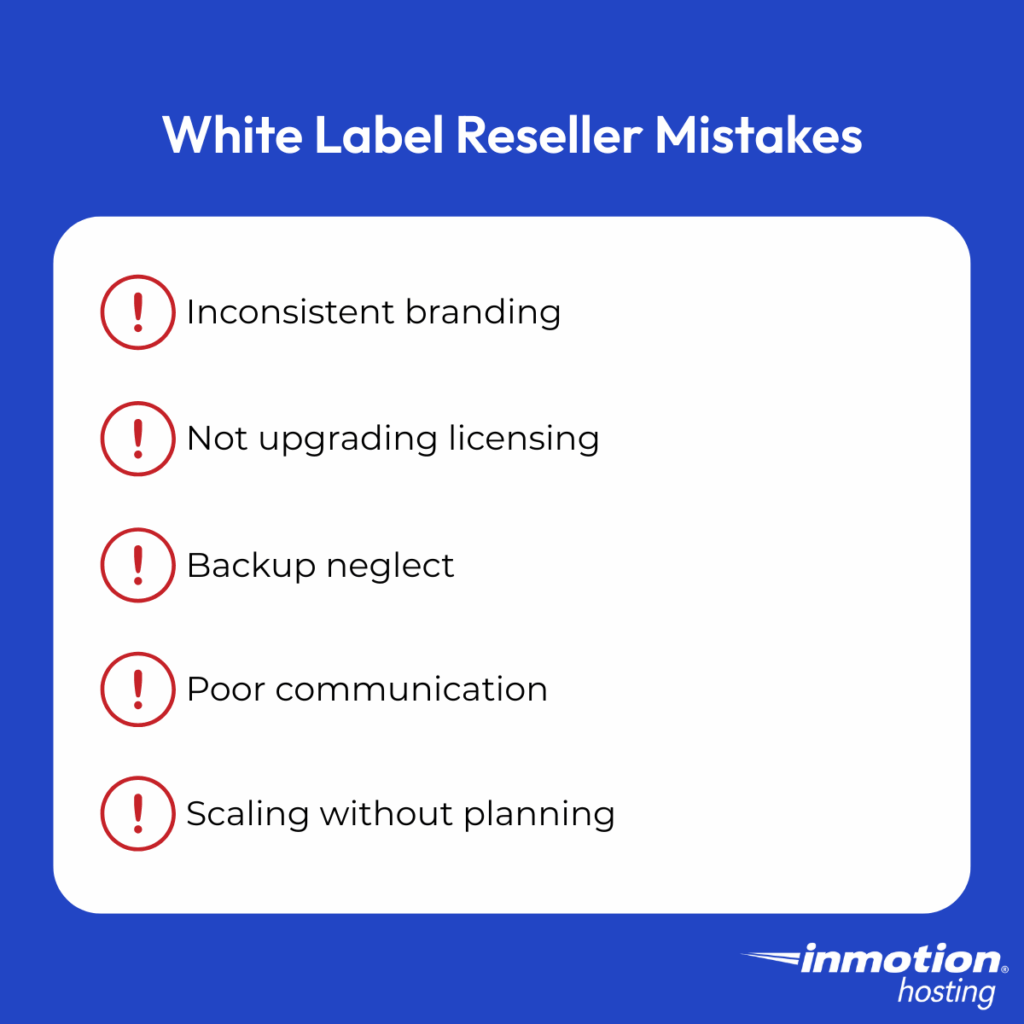
Common White-Labeling Struggles to Avoid
Even experienced resellers make small mistakes that can affect their brand’s appearance or customer trust. Keep these in mind as you build your reseller business.
Inconsistent branding
Inconsistent branding is one of the most common issues. Forgetting to update branding across WHM, WHMCS, and Webmail interfaces creates a mixed experience for clients. Using inconsistent logos or colors between billing and hosting portals makes your brand look disconnected. Take the time to update all customer-facing platforms at once, and test each login portal to verify the experience matches your brand.
Not upgrading WHMCS licensing
Licensing can catch new resellers off guard. Not upgrading your WHMCS license leaves “Powered by WHMCS” visible on every page, reducing your brand’s professional feel. Many reseller plans include a WHMCS Starter license, but you’ll need to upgrade to a full license for complete white-labeling. Factor this cost into your pricing strategy from the start.
Backup neglect
If you don’t create backups, it can create major problems. If a site fails or needs migration and you don’t have recent backups, you’re facing a crisis that could damage client relationships. Schedule automated backups and confirm your restoration procedures work before you actually need them. This is your responsibility as a reseller, even though your provider manages the server infrastructure.
Poor communication
Not communicating with teams during changes or migrations undermines trust. If you migrate clients or change plans without explanation, they’ll feel uncertain about your service. Always notify clients before making changes, explain the benefits they’ll see, and provide a clear timeline with a point of contact for questions. Your transparency builds trust, and that trust becomes the foundation of your recurring revenue.
Scaling without planning
Jumping into a project without scaling causes performance issues down the road. As your client list grows, monitor your resource usage regularly and understand your upgrade path before you need it. Look for providers that allow you to move from entry-level reseller plans to VPS or dedicated servers while keeping your existing client configurations intact. This flexibility means you won’t hit a ceiling that forces an emergency migration or platform change.
By maintaining consistency and taking advantage of automation and backup tools, you can avoid these pitfalls and keep your brand strong.
The Hidden Power of Support and Infrastructure
Behind every branded reseller account is your provider’s infrastructure. That includes:
- NVMe storage for ultra-fast read/write speeds.
- 99.9% uptime SLA backed by performance monitoring.
- 24/7 real human support for whenever you need help resolving an issue or answering a client question.
While your customers see your logo, you get the confidence of enterprise-grade systems and expert support running underneath your brand. That’s the balance a hosting provider like InMotion Hosting’s reseller platform is designed to deliver: your brand’s front-end experience with a solid technical backbone.
The True Cost of Automation: WHMCS, Blesta, and Beyond
Automation is the backbone of a successful reseller business. Software like WHMCS and Blesta handles client billing, account provisioning, renewals, and support tickets so you don’t have to manage these manually. But licensing can add unexpected monthly costs if it’s not included in your plan.
Verify what’s included
Before committing to a provider, check whether a WHMCS license is built into your plan. Some reseller accounts include a WHMCS Starter license, which gives you the essentials to start billing and supporting clients right away. However, Starter licenses display “Powered by WHMCS” on all pages.
Understand upgrade costs
For complete white-labeling, you’ll need to upgrade to a full WHMCS license. These typically run $20-30 per month depending on the tier. Factor this into your pricing model from the start so it doesn’t eat into your margins later.
Consider alternatives
If you prefer different pricing or features, Blesta offers simpler pricing and open-source flexibility. The choice depends on your technical comfort level and which features matter most to your business model.
Either way, integrating automation early saves hours of administrative work and prevents billing errors that could damage your client relationships. The monthly cost is typically offset by the time you save and the professional experience you provide.
Where Can I Update My Branding
There are two places where you can update your custom branding depending on the services you offer, WHM or WHMCS.
Branding via WHM
If you are only offering cPanel accounts, the branding can be updated from your Web Host Manager (WHM). So, when customers login to the cPanel account you sell them or their Webmail, they will only see your company logos.
| Before: | After: |
|---|---|
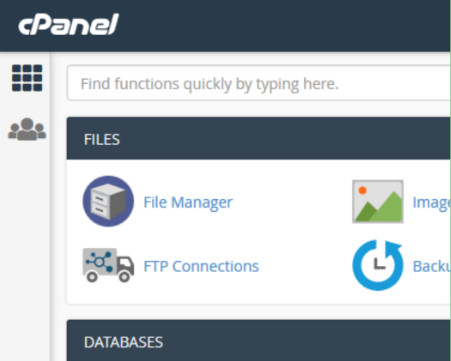 |
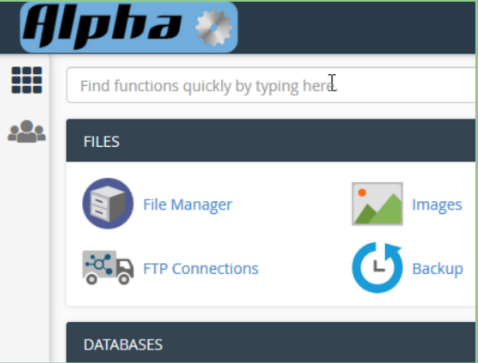 |
To see exactly what can be updated in your account, check out the following guide:
Branding WHMCS
If you are looking for software that can help you manage your billing or provide tech support services, WHMCS is a perfect solution. This is due to the ability of WHMCS to manage payment gateways and billing notifications for customers and to also provide a ticket system for support requests.
But, keep in mind that all Reseller Hosting accounts include a free WHMCS Starter license. With a Starter license, it will say “Powered by WHMCS” on the bottom of all pages.

You will need to purchase an upgraded WHMCS License since they all include white-labeling. If you have an upgraded license, you can follow the article below to get started with WHMCS.
Where Can I Update My Branding
There are two places where you can update your custom branding depending on the services you offer, WHM or WHMCS. We’ll show you examples using our own platform:
Branding via WHM
If you are only offering cPanel accounts, the branding can be updated from your Web Host Manager (WHM). So, when customers login to the cPanel account you sell them or their Webmail, they will only see your company logos.
Before:
[Default InMotion branding]
After:
[Your custom branding]
To see exactly what can be updated, check out the following guide:
Branding WHMCS
If you are looking for software that can help you manage your billing or provide tech support services, WHMCS is a perfect solution. This is due to the ability of WHMCS to manage payment gateways and billing notifications for customers and to also provide a ticket system for support requests.
But, keep in mind that all Reseller Hosting accounts include a free WHMCS Starter license. With a Starter license, it will say “Powered by WHMCS” on the bottom of all pages.
You will need to purchase an upgraded WHMCS License since they all include white-labeling. If you have an upgraded license, you can follow the article below to get started with WHMCS.
Managed vs. Unmanaged Reseller Hosting
Every reseller must decide how much control they actually want. This choice affects how you spend your time and what technical skills you need.
Unmanaged reseller hosting gives you more flexibility but also more responsibility. You handle updates, patches, and troubleshooting. This works well if you have technical expertise and want complete control over server configurations. However, it requires ongoing time investment to maintain security and performance.
Managed reseller hosting keeps the same level of brand control while your provider handles performance tuning, monitoring, and security. You still use WHM, WHMCS, and cPanel under your brand, but your provider takes care of the system-level work.
If your focus is on growing your business or managing client websites rather than maintaining servers, managed hosting is the better choice. The infrastructure stays fast and secure without requiring your constant attention. That balance lets you focus on service quality and client satisfaction instead of server configurations.
Most successful resellers choose managed hosting because it lets them scale their client base without scaling their technical team.
Building a Trusted Brand as a Reseller
Your clients never see the backend host, they see your brand. Every interaction, from your billing portal to their control panel, shapes how they perceive your professionalism. Consistent branding across WHM, WHMCS, and Webmail makes your service feel unified and reliable.
Remember: Your clients never see the backend host, they only see your brand. Every interaction, from your billing portal to their control panel, shapes how they perceive your professionalism.
Maintain that consistency by aligning your color palette, logo placement, and domain structure. Use clear, friendly language in automated emails and ticket responses. You can even customize cPanel and Webmail themes to match your company’s tone and design.
Clients remember who helps them when their site goes down or their email stops working. By combining your personalized service with a strong technical foundation, you build a brand that earns referrals and long-term loyalty.
Migration, Growth, and Scalability Planning
Switching hosting providers can be one of the most stressful parts of running a reseller business. Migration downtime, DNS issues, and lost branding assets can easily damage client relationships. The key is choosing a host that supports seamless scaling so you rarely need to migrate.
Look for providers that allow resource upgrades without forcing a platform change. InMotion Hosting, for example, lets you move from a small reseller plan to a VPS or dedicated server while keeping your existing clients and configuration intact.
Pro Tip: Before you need to upgrade, understand your provider’s migration process. Some hosts let you move from reseller to VPS hosting while keeping your existing client accounts and configurations intact. This prevents downtime and maintains your brand continuity.
That kind of scalability ensures you can grow from a few clients to hundreds without sacrificing performance or uptime. It’s the ability to expand your business without reworking your foundation.
Balancing Profit and Simplicity
Many new resellers believe keeping costs low guarantees higher profit, but in hosting, that’s rarely true. The lowest-priced plans often come with hidden limits, slow support, or weaker uptime. Over time, those issues cost more than you save.
Think in terms of total return on effort
If a provider offers faster response times, built-in automation, and scalable resources, you’ll spend less time fixing problems and more time serving clients. Even if that plan costs a little more each month, your business runs smoother and your clients stay happier, leading to higher retention and referrals.
Consider what your time is worth. If you spend five hours per month dealing with support tickets that could have been prevented by better infrastructure, you’re losing money even on a cheaper plan. Factor in the opportunity cost of time spent on technical issues instead of acquiring new clients.
Professional resellers see hosting as a partnership, not just a product
When your backend runs reliably, you can confidently promise uptime, performance, and customer care all under your own name. That confidence translates into better client relationships and a stronger brand reputation.
Price matters, but reliability, support quality, and ease of management often matter more in the long run.
How to Choose a Reputable White Label Provider
The forums make it clear: reliability and support matter more than flashy brand names. Many large hosting companies focus on volume, not partnership. Resellers who want stability should look for reputation, transparency, and accountability over rock-bottom prices.
Start with uptime and support commitments
A provider with a 99.99% uptime SLA, fast ticket turnaround, and dedicated reseller support team will save you hours of frustration. These aren’t just numbers on a sales page, they directly affect whether your clients’ sites stay online and how quickly problems get resolved.
Verify the infrastructure specs
Ask whether they use NVMe SSD storage, since that directly affects your clients’ site speed. Confirm where their data centers are located for regional performance. Check if they include built-in caching and CDN options, or if those cost extra.
Look for included automation tools
A host that bundles WHMCS or Blesta saves you licensing costs and setup time. This makes it easier to start billing clients and managing accounts without additional monthly expenses.
Check community feedback
Look beyond marketing materials and read what other resellers say in forums and review sites. Hosts that consistently appear in positive discussions tend to deliver on their promises. Watch for mentions of responsive support, honest communication during outages, and clear upgrade paths.
Before committing, consider these questions:
- Can you upgrade resources (disk space, bandwidth, accounts) without changing platforms?
- Do they offer migration assistance if you’re switching from another provider?
- Is there a dedicated reseller support team, or will you wait in the same queue as shared hosting customers?
- What’s included in the base plan versus what costs extra?
- The right provider becomes a true partner in your business, not just a vendor.
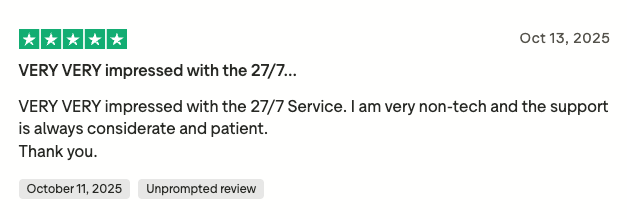
What to Look for in a Long-Term Hosting Partner
As your reseller business matures, your success depends on the stability of your hosting partner. Look for these four pillars when evaluating providers:
Performance and Speed: NVMe SSD storage and optimized server configurations keep client sites fast.
Reliable Human Support: 24/7 expert assistance means issues are solved quickly by people, not bots.
Scalability: The ability to upgrade smoothly as your client base grows.
Accountability: Clear uptime guarantees and transparent communication about maintenance or outages.
A host that delivers on these points isn’t just a vendor, it’s the foundation of your brand’s reputation. When your provider invests in your growth, you can confidently promise the same reliability to your own clients.
Last Thoughts
White label reseller hosting gives you the freedom to grow your own hosting brand without managing servers or data centers. It’s your name, your pricing, and your customer experience, powered by professional infrastructure and support.
The key to success is consistency. Whether you’re customizing WHM for a handful of clients or managing hundreds of accounts through WHMCS, maintain your branding across every touchpoint. Combine that with reliable technical infrastructure, clear communication, and strategic planning for growth.
Start small if you need to, but start with the right foundation. Choose a provider that offers clear upgrade paths, solid uptime guarantees, and responsive support. With proper branding and the right partner, you can build a reseller business that scales confidently as your reputation grows.
Now that you understand how white-labeling works, the next step is implementing your branding. Check out our Reseller Hosting product guide for more tutorials to help you build a successful business.
Now that you know what white-labeling is and how it works, you can begin customizing your accounts and building your brand as a Reseller. Check out our Reseller Hosting product guide for more tutorials to help you build a successful business.
Sell hosting using your own brand with a powerful Reseller Hosting plan, now with more resources and faster storage using NVMe SSDs at no extra cost.
Reliable Infrastructure
User-Friendly Tools
Custom Branding
Exceptional Support
Reseller Hosting Plans







